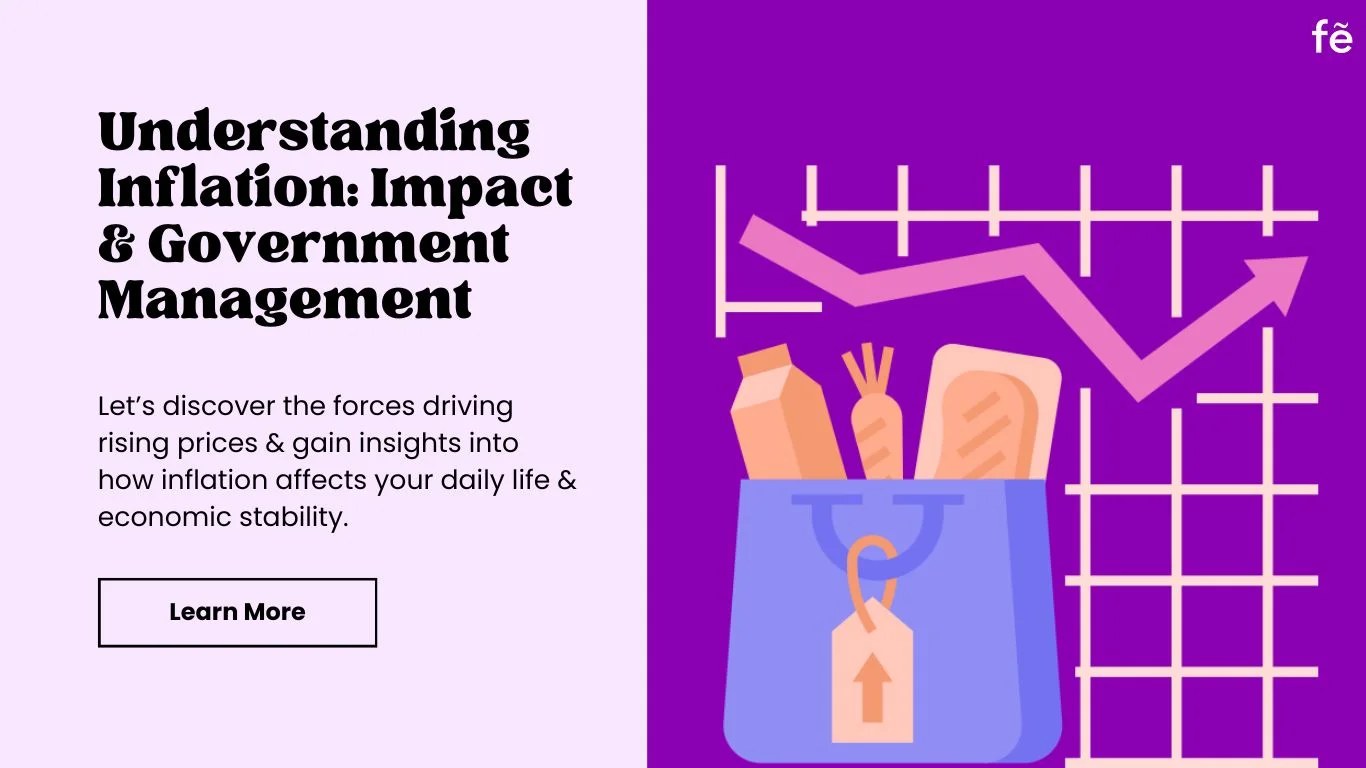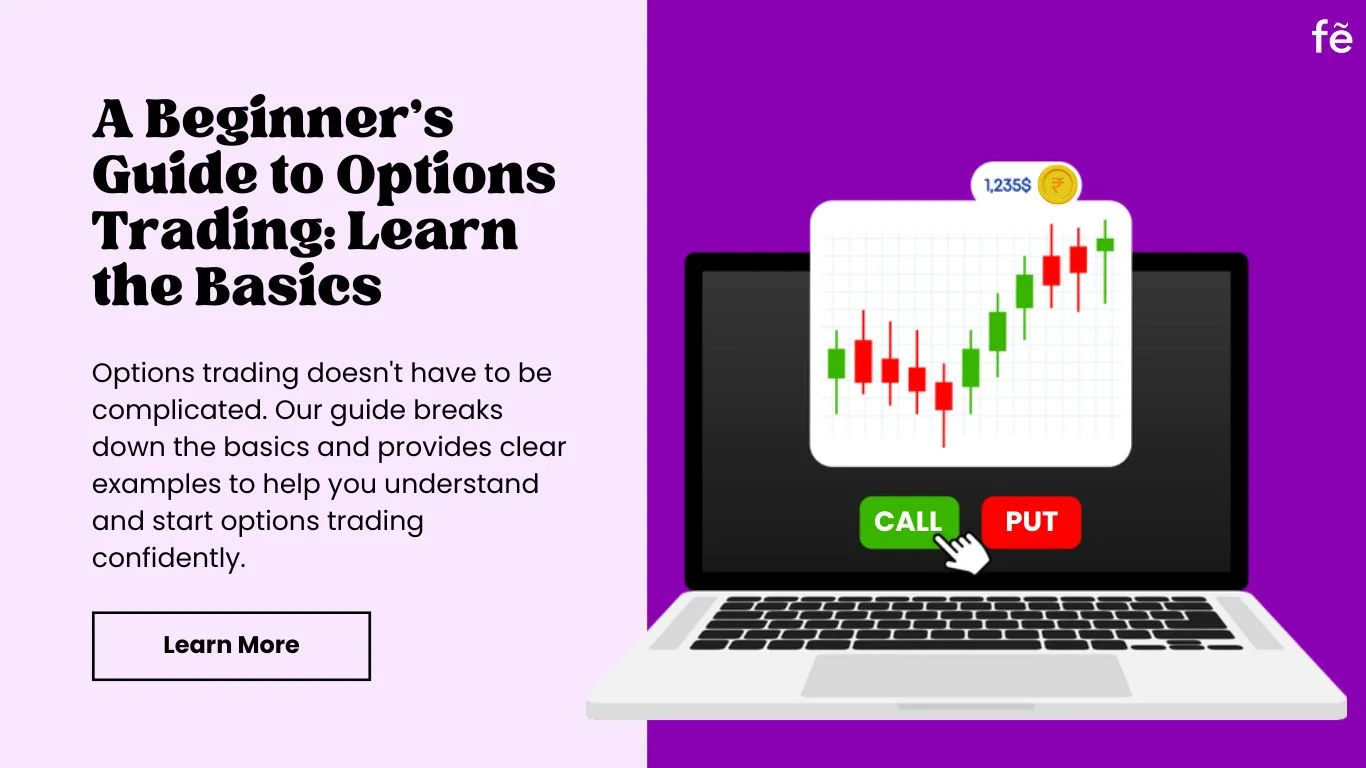
We often hear from our grandparents or parents that things were much cheaper in their time, and today their prices are sky-high. We are amazed when we listen to their stories.
The biggest reason for high inflation is the high demand and low supply of things that are common in developing countries. Before the accessibility of the internet and evaluation, many people were unaware of it. But today, anyone can search on Google and find out the inflation rate of any country.
So in this blog, let's explore and learn about inflation and how this metric is calculated. We will also understand the impact it has on our lives if it increases and how the government controls it. Let’s start with a question, What is Inflation?
What is Inflation?

Inflation is like a situation where the prices of things we buy regularly, such as groceries, clothes, and even services like getting a haircut, keep going up over time. Imagine if the cost of your favorite snacks, a new pair of shoes, or going to the movies kept getting higher every year. That's what we call inflation.
How To Measure the Inflation?
To figure out how much prices are increasing, we use something called an "index." This index has various indices that help us keep track of how the general cost of things is changing. There are a few different types of indices that we use to measure inflation:
Consumer Price Index (CPI): This one looks at the prices of things people commonly buy, like food, clothes, housing, and transportation. It checks how much these prices have gone up compared to a certain base year.
Producer Price Index (PPI): This index is a bit different. It looks at how much the costs of goods and services that businesses make are changing. For example, if the cost of materials a company uses to make things like toys or electronics goes up, that could lead to higher prices for those items in the stores.
GDP Deflator: This is a more complicated one, but it's also a way to see how prices are changing. It's used to adjust the total value of all the things a country produces, which is called the Gross Domestic Product (GDP), for inflation.
Why Does Inflation Happen?
Inflation can happen for a few reasons. One main reason is when there's too much money floating around in the economy. If there's more money available, people can spend more, which might drive up the demand for things. When demand increases and the supply of things stays the same, prices tend to rise.
Another reason is that it costs more to make things. If it becomes more expensive for companies to produce goods or provide services, they might raise their prices to cover those extra costs.
The Effects of Inflation

Inflation can affect us in different ways. When prices go up, our money might not be able to buy as much as it used to. So, we might need more money to buy the same things we bought before. This can impact our savings and budgets. It can also make it harder for people to plan for the future because they're not sure how much things will cost later on.
Inflation can impact people's lives in a few different ways, such as,
1. Higher Prices: The most noticeable effect is that the prices of things we buy regularly go up. From every day groceries to clothes, gadgets, and even services like going to the movies or eating out, everything can become more expensive. This means you might need to spend more money to get the same things you used to.
2. Reduced Purchasing Power: As prices rise, the purchasing power of your money decreases. That means the money you have might not go as far as it used to. What you could buy for $10 last year might now cost $12, so you need more money to buy the same product or service.
3. Savings and Investments: Inflation can also affect your savings and investments. If the prices of things are increasing, the value of your savings might not grow as much as you hoped. For example, if you're saving money in a bank account with a low-interest rate while inflation is higher, the real value of your savings could actually decrease over time.
4. Planning for the Future: Inflation can make it trickier to plan for the future. If you're saving up for something like a car or a house, the rising prices might mean you need to save more money than you initially thought to reach your goal.
5. Fixed-Income Concerns: People who receive fixed incomes, like retirees living on pensions, can feel the impact of inflation even more. If prices are going up but their income stays the same, it becomes harder for them to afford the same things they used to.
6. Economic Uncertainty: High inflation can also create economic uncertainty. Businesses might hesitate to invest and expand, and people might be worried about their financial stability. This uncertainty can affect job opportunities and overall economic growth.
7. Interest Rates: To combat inflation, central banks might raise interest rates. This can affect loans and mortgages, making borrowing more expensive. It can also impact people's ability to buy homes and make big purchases.
8. Social Impact: Inflation can also have social implications. When prices rise quickly, it can lead to social unrest as people struggle to afford basic necessities, and it can disproportionately affect those with lower incomes.
How Government Manage the Inflation?
When prices of things keep going up (inflation), the government takes action to manage it. They have a couple of important ways to do this:
1. Monetary Policy:
This is like how a central bank (the big bank that helps manage a country's money) tries to control inflation.
Interest Rates: Imagine if the central bank thinks inflation is getting too high. They might raise interest rates. This makes borrowing money more expensive. When borrowing costs more, people and companies might decide to borrow less. This could slow down spending and help cool off the economy, which can lower inflation.
Open Market Operations: This is a bit like a money magic trick. The central bank can buy or sell government bonds (a type of investment) to influence how much money is floating around. Buying bonds puts more money out there, like giving people more cash to spend. Selling bonds takes money out of circulation.
Reserve Requirements: Banks are like piggy banks for the money we put in. The central bank can tell banks how much money they need to keep in their piggy banks. If they have to keep more money aside, they have less to lend out. This can help control spending and reduce inflation.
2. Fiscal Policy:
Using this policy, the government can play with taxes and spending to manage inflation.
Taxation: If the government wants to slow things down and control prices, they might increase taxes. When taxes are higher, people and businesses might have less money to spend, which can ease the demand for goods and services and help lower inflation.
Government Spending: On the other hand, if the economy is sluggish and not growing well, the government can spend more money on projects like building roads or schools. This can boost demand, increase jobs and get people spending, which might help prevent prices from falling too much (deflation). But they have to be careful not to spend too much, or prices might rise too quickly.
The government's job is like walking on a tightrope. They need to balance things just right. If they try to control inflation too much, they could slow down the economy too much, causing people to lose jobs and businesses to struggle. But if they don't manage inflation, prices can rise so much that our money doesn't go as far, and people find it tough to afford things.
Conclusion
In this blog, whatever we have learned about inflation, it is inevitable that if you are doing future financial planning, it is the most important aspect for you. It can jeopardize your savings and your targets.
It is also very essential for the government so that the economy stays stable and people can still afford the things they need. This topic is currently quite popular and also important, so we will continue to discuss more about inflation. In the next blog, we will explore the role of citizens in increasing inflation and how people do this for their benefit.
You May Also Like:
- Ultimate Guide to Tax Optimization: 7 Smart Strategies to Minimize Your Taxes
- The Fascinating History of the Stock Market: From Its Origins to Today
- The Impact of Social Media on the Stock Market
- What Is Impact Investing? History & Key Characteristics
- Is Gold Still a Worthy Investment in 2024? History & Reasons






